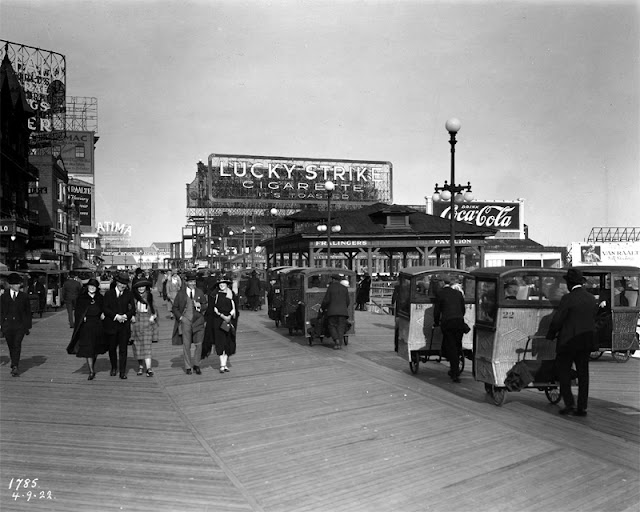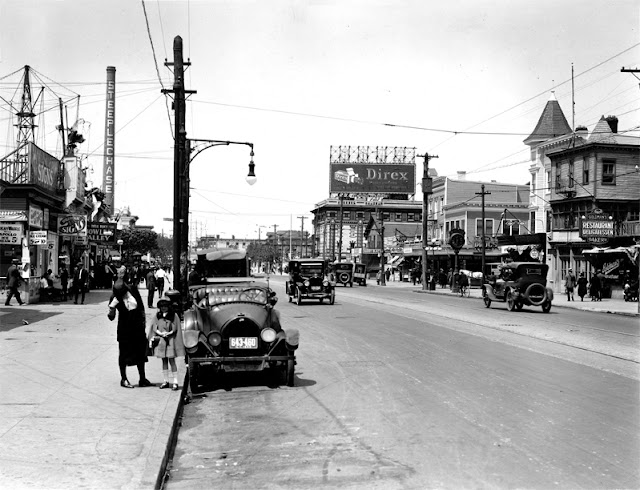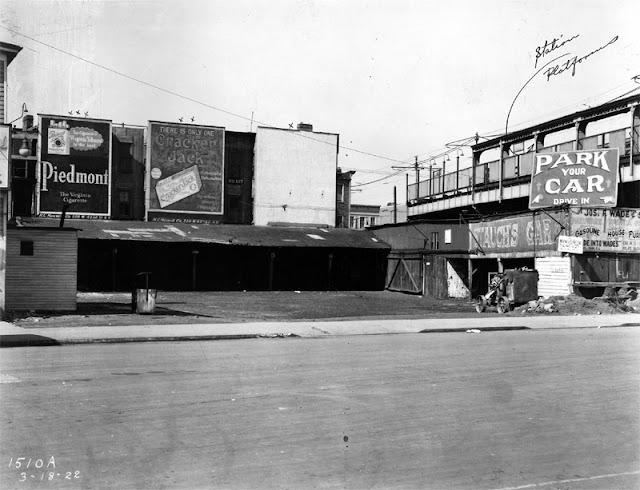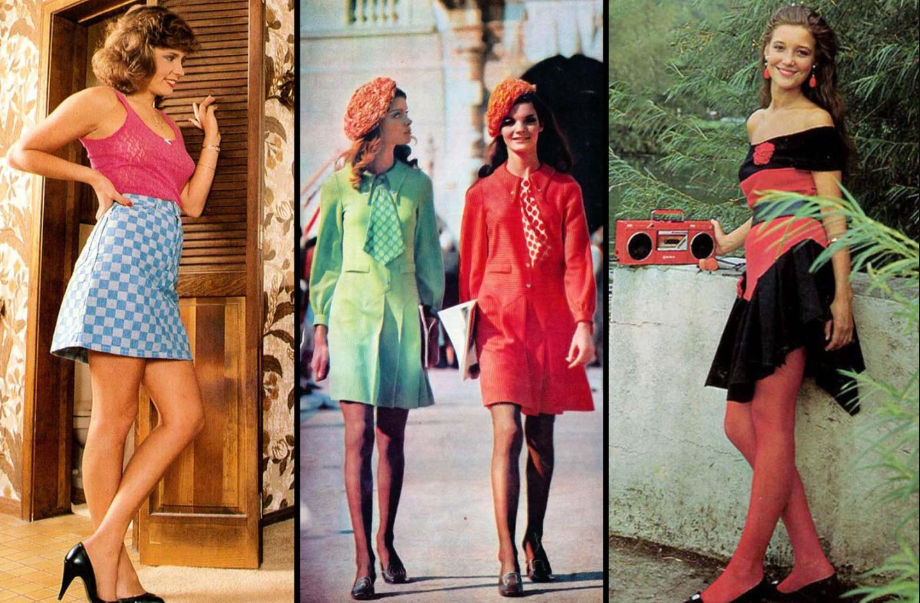The 1920s was an era of contradictions for New York as a modern industrial city that, with engineering feats of wonder, had conquered the sky and constructed a hidden network of water lines, sewer lines, and power lines below the ground.
In the 1920s the gap between the City's infrastructural capacity and its population once again widened. The City's roadways did not keep pace with the rapidly increasing popularity of the automobile.
Between 1918 and the end of the 1920s, there were more than a half a million new motor vehicles on the streets yet there had been no new highway construction within the City, choking the City with traffic.
The Depression brought an end to construction of a West Side Highway, begun in 1927, and the Triborough Bridge, begun in 1929. Yet the end of the 1920s and early 1930s did open the City to more traffic. The Holland Tunnel opened in 1927 and the George Washington Bridge in 1931.
Like the roadways, development of parks lagged far behind the booming population. Land reserved for parks in Brooklyn was rented to commercial enterprises. Central Park-the gem of the City-fell into disrepair.























